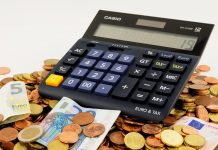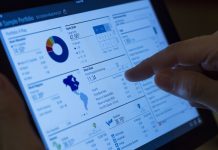Are you tired of feeling like your debt is holding you back from reaching your financial goals? Are you ready to take control and find the tips to be debt free that will work for you? If so, you’ve come to the right place!
This article will discuss ten easy and practical tips to be debt free to help you achieve financial freedom and live a debt-free life. So, are you ready to take the first step toward financial independence?
What is the Debt Problem?
The problem of debt is a significant concern for many people. It can feel like you’re stuck in a never-ending cycle, constantly making payments and never seeing progress. Debt can cause stress and anxiety and even impact your overall well-being. And the worst part? The longer you’re in debt, the harder it becomes to get out.
Interest continues to accrue, making your debt more significant and challenging to manage. But it doesn’t have to be this way. With the right approach and a little effort, you can take control of your debt and start living a debt-free life. Don’t let debt control you any longer. It’s time to take charge and start living the life you deserve.
The Importance of Becoming Debt-Free
Becoming debt-free is one of the most critical steps to achieving financial freedom. When you’re in debt, it can feel like you’re constantly swimming upstream, never making real progress. But once you become debt-free, the weight is lifted off your shoulders. As a result, you’ll have more money to save and invest, allowing you to reach your financial goals faster.
And the best part? You’ll have peace of mind, knowing you’re in control of your finances and no longer held back by debt. Becoming debt-free isn’t just about having more money; it’s about having more freedom. It’s about being able to live your life on your terms and never having to worry about debt again. So don’t wait any longer. Start taking the steps towards becoming debt-free today!
10 Simple Tips to Get Out of Debt and Start Building Wealth
Create a Budget
Budgeting is one of the most critical steps to achieving financial freedom and reducing debt. When you create a budget, you’re taking control of your finances and planning how to spend your money.
Having a budget lets, you know exactly how much money you have coming in and going out, which will help you make more informed financial decisions. And by sticking to your budget, you’ll be able to reduce your debt and start living a debt-free life.
How to Create a Budget?
Creating a budget doesn’t have to be complicated or time-consuming. It’s a relatively simple process that can be done in just a few steps. Start by tracking your spending for one month to get an idea of where your money is going.
Then, list all your income and expenses, including your rent or mortgage payment to your entertainment expenses. Finally, compare your income to your costs to see where to make cuts.
The Impact of Budgeting on Debt Reduction
With a budget, you can prioritize your spending and pay off your debt faster. You’ll also avoid adding to your debt, which will help you get out of debt even quicker.
By sticking to your budget and making wise financial decisions, you’ll achieve financial freedom and live a debt-free life. So, what are you waiting for? Start creating your budget today!
Pay Off High-Interest Debt First
High-interest debt is debt with an interest rate higher than average, such as credit card debt or payday loans. This type of debt can be hazardous because the interest accrues quickly, making it harder and harder to pay off. And the longer you’re in high-interest debt, the more it grows, making it even more difficult to escape.
How to Prioritize Paying Off High-Interest Debt?
When paying off debt, it’s important to prioritize paying off high-interest debt first. This means paying off this type of debt a priority and paying as much as possible towards it each month while still making minimum payments on your other debts. You may also want to consider transferring your high-interest debt to a lower-interest credit card or loan to help reduce the amount of interest you pay over time.
The Impact of Paying Off High-Interest Debt on Overall Debt Reduction
Paying off high-interest debt can significantly impact your overall debt reduction. By paying off this type of debt first, you’ll be able to reduce the interest you pay over time, freeing up more money to put toward other obligations. And by paying off your high-interest debt, you’ll be one step closer to living a debt-free life.
Stop Adding to Your Debt
When you’re constantly adding to your debt, it’s like trying to fill a bucket with water while it leaks. You’ll never get ahead, no matter how much you try to fill it. And the longer you add to your debt, the more interest accrues, making your debt grow even more significantly.
Steps to Take to Stop Adding to Debt
Changing your spending habits to stop adding to your debt would be best. Start by creating a budget to help you track your spending and identify areas where you can cut back. Then, avoid using credit cards and loans to make purchases; instead, pay for everything in cash. Finally, plan to pay off your debt as quickly as possible.
The Effect of Not Adding to Debt on Overall Debt Reduction
By stopping the cycle of adding to your debt, you can focus on paying it off, which will help you get out of debt faster. And by not adding to your debt, you’ll also be able to avoid accruing more interest, reducing the amount of money you pay over time. So, if you’re ready to take control of your debt, it’s time to stop adding to it and start living a debt-free life.
Increase Your Income
When more money comes in, you’ll have more to pay off your debt and save for the future. And the more you increase your income, the faster you’ll be able to get out of debt and reach your financial goals.
Ways to Increase Income
There are many ways to increase your income, including taking on a side job, freelancing, starting a business, or investing in stocks or real estate. You may also be able to increase your income by asking for a raise at work or negotiating a higher salary. Finding a way to increase the revenue that works for you and your lifestyle is essential.
The Result of Increased Income on Overall Debt Deduction
With more money coming in, you’ll be able to pay off your debt faster and reach your financial goals sooner. And the more you increase your income, the more you’ll be able to put towards paying off your debt and achieving financial freedom. So, if you’re ready to take control of your debt, it’s time to start increasing your income.
Cut Expenses
Cutting expenses is one of the most effective ways to reduce debt and achieve financial freedom. When you cut your costs, you free up more money to pay off your debt and save for the future. And the more you cut your expenses, the faster you’ll be able to get out of debt and reach your financial goals.
Ways to Cut Expenses
There are many ways to cut expenses, including reducing your grocery bill, cutting back on entertainment expenses, and saving on utility bills. You may also consider cutting back on non-essential expenses, such as subscriptions and memberships, to free up more money to pay off your debt.
The Consequence of Cutting Expenses
Reducing your expenses means you’ll have more money to pay off your debt and achieve financial freedom. And the more you cut your costs, the faster you’ll be able to get out of debt and reach your financial goals. So, if you’re ready to take control of your debt, it’s time to start cutting expenses.
Use the Debt Snowball Method
The debt snowball method is a debt repayment strategy that involves paying off your debts from smallest to most significant, regardless of interest rate. This method is based on the idea that by paying off smaller debts first, you’ll experience quick wins and build momentum to help you stay motivated and focused on paying off your debt.
How to Use the Debt Snowball Method?
To use the debt snowball method, you must list all your debts and arrange them from smallest to largest. Then, focus on paying off the smallest debt first while making minimum payments on your other debts. Once you’ve paid off the first debt, you’ll use the extra money you were putting towards that debt to help pay off the next debt, and so on.
The Impact of the Debt Snowball Method
The debt snowball method can significantly impact your overall debt reduction. By focusing on paying off your debts in order of smallest to largest, you’ll be able to experience quick wins and build momentum to help you stay motivated and focused on paying off your debt.
Use the Debt Avalanche Method
The debt avalanche method is a debt repayment strategy that involves paying off your debts in order of highest to lowest interest rate, regardless of balance. This method is based on the idea that by focusing on paying off your highest interest rate debt first, you’ll reduce the amount of interest you pay over time, which will help you save money and reach your financial goals faster.
How to Use the Debt Avalanche Method?
To use the debt avalanche method, list all your debts and arrange them from highest to lowest interest rate. Then, focus on paying off the debt with the highest interest rate first while making minimum payments on your other debts. Once you’ve paid off the first debt, you’ll use the extra money you were putting towards that debt to help pay off the next debt, and so on.
The Result of the Debt Avalanche Method
Focusing on paying off your highest interest rate debt first will reduce the amount of interest you pay over time, which will help you save money and reach your financial goals faster.
Consider Debt Consolidation
Debt consolidation is a debt repayment strategy combining multiple debts into one loan with a lower interest rate. This can make it easier to manage your debt and reduce the interest you pay over time.
How Can Debt Consolidation Help With Debt Reduction?
Debt consolidation can help with debt reduction in several ways. First, combining multiple debts into one single loan with a lower interest rate will reduce the interest you pay over time, which will help you save money and reach your financial goals faster.
The Effect of Debt Consolidation
By reducing the interest you pay over time and simplifying your debt repayment process, debt consolidation can help you save money and reach your financial goals faster. And by making it easier to manage your debt, debt consolidation can also help you avoid missing payments or falling behind, which can hurt your credit score.
Seek Professional Help
In these cases, seeking professional help may be necessary to help you get back on track and achieve financial freedom. Professional service can give you the guidance and support you need to make a debt repayment plan, negotiate with creditors, and avoid falling behind on your debts.
How to Find Professional Help?
There are many ways to find professional help, including working with a financial advisor, a debt counselor, or a credit counseling agency. You can also find professional help by searching online or contacting your local consumer credit counseling service. When seeking professional help, finding someone you trust and who has experience dealing with debt is essential.
The Professional Help Result
By providing you with the guidance and support you need to make a debt repayment plan, negotiate with creditors, and avoid falling behind on your debts, professional help can help you get back on track and achieve financial freedom. And by making it easier to manage your debt, professional service can also help you avoid missing payments or falling behind, which can hurt your credit score.
Stay Motivated
Getting out of debt and achieving financial freedom is a long and challenging process, but it’s also one of the most rewarding things you can do. And to get there, you need to stay motivated. Motivation keeps you going and helps you stay focused on your goals, even when the journey is difficult.
Ways to Stay Motivated
There are numerous ways to stay motivated, including setting clear and achievable goals, tracking your progress, celebrating your successes, and surrounding yourself with positive and supportive people. You can also stay motivated by reading books and articles about personal finance, attending workshops and events, or working with a financial advisor or debt counselor.
The Impact of Staying Motivated
By keeping you focused on your goals and helping you stay on track, staying motivated can help you get out of debt and achieve financial freedom faster.
Understanding the Different Types of Debts
Debt comes in many forms, and understanding the different types of debt is essential to achieve financial freedom. The four most common types of debt are credit card, personal, student, and auto loans. Each type of debt has its unique features, benefits, and drawbacks, and it’s essential to understand the differences so you can make informed decisions about how to manage your debt.
Credit card debt is an unsecured debt often used for everyday purchases, like groceries or gas. Credit card debt usually has a higher interest rate than other types of debt, and it can be challenging to pay off if you carry a balance from month to month.
Personal loans are unsecured loans that can be used for various purposes, such as home improvements, medical expenses, or debt consolidation. Personal loans usually have a fixed interest rate and repayment term, making managing your debt more manageable.
Student loans are a type of debt used to pay for education. Student loans can be either federal or private, with variable interest rates and repayment terms. Student loans can be a good investment in your future but can also be challenging to pay off if you don’t have a solid plan.
Auto loans are a type of secured debt used to purchase a vehicle. Auto loans usually have a lower interest rate than other types of debt, and they can be easier to pay off because they have a shorter repayment term.
Best Practices for Negotiating With Creditors & Lenders
Negotiating with creditors and lenders is a critical part of achieving financial freedom. But it’s not always easy to know what to say or do when you’re trying to negotiate your debt. That’s why it’s essential to be prepared and to understand the best practices for dealing with creditors and lenders.
Debt negotiation tactics include consolidating your debt, negotiating a lower interest rate, or extending your repayment term. Using these tactics, you can lower your monthly payments, reduce overall debt, and get out of debt faster.
Research and preparation are essential to get the most out of your debt negotiation efforts. You should understand your financial situation, know your rights, and have a solid debt repayment plan. You should also be clear and concise when communicating with your creditors and lenders and be willing to compromise if necessary.
A debt consolidation plan can be a great option to get out of debt. Debt consolidation allows you to combine multiple debts into one monthly payment, making managing your debt more manageable and achieving financial freedom.
Say Goodbye to Debt: A Summary of 10 Easy Ways to Become Debt-Free
In conclusion, becoming debt-free is a journey that requires commitment, discipline, and a solid plan. But with the right approach, you can take control of your debt and achieve financial freedom.
The ten tips we’ve discussed in this article include creating a budget, paying off high-interest debt first, stopping the addition of debt, increasing your income, cutting expenses, using the debt snowball or avalanche method, considering debt consolidation, seeking professional help, and staying motivated, can help you achieve your debt-free goals.
By following these tips, you can reduce your debt, improve your financial situation, and start living the life you deserve. So, if you’re ready to take the first step towards debt-free living, it’s time to implement these tips into your daily routine.












